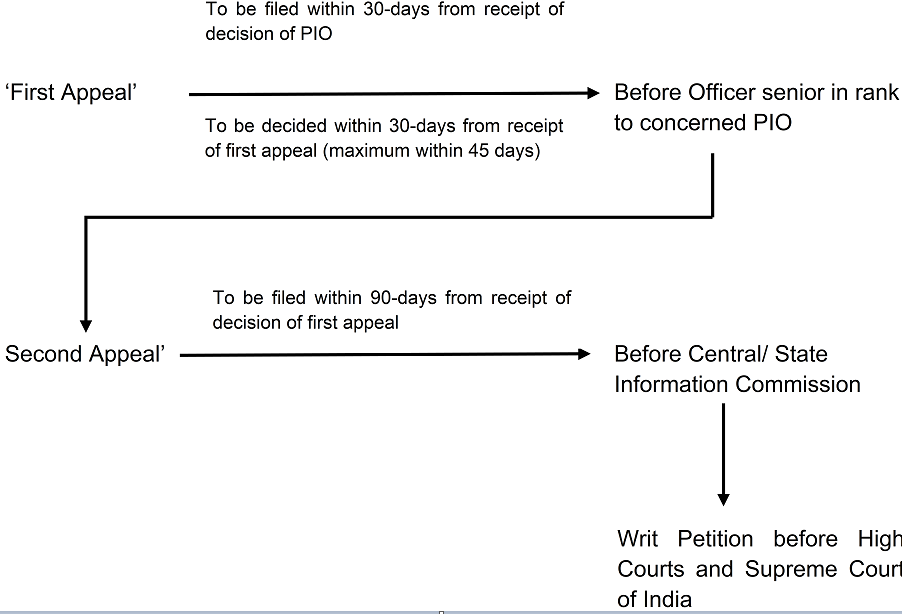By Sayli Petiwale, Senior Associate, Aureus Law Partners
Democracy at its core provides for governance and rule of the people. The right to information forms a sub-set of Article 19 of the Constitution of India, which protects our basic fundamental right of expression. It is imperative to understand the functionality of Government; without which a citizen cannot form or express an informed opinion. With this idea, the Right to Information Act, 2005 (“RTI Act/ the Act”) was enforced. The major objective was to bring into place a practical regime for citizens, where they could secure access to information which is under control of public authorities. This would promote transparency and accountability.
The RTI Act provides that any person who is a citizen of India can seek information from a public authority. However, there are certain exceptions on what information can be and cannot be provided to the citizen. For example – information forbidden by a court to be disclosed, commercial secrets and intellectual property rights, information which would impede the process of investigation/ apprehension/ prosecution of offenders, etc. to name a few are exempted under the RTI Act. It is mandatory for every public authority to appoint a Public Information Officer (at every administrative office/ unit) and an Assistant Public Information Officer (at sub-district/ sub-divisional level) to handle the information requests and appeals filed by citizens under the RTI Act.
The step by step process about how to file an RTI application in India which a citizen may follow is as follows:
-
Understanding before which authority RTI Application should be made
Before proceeding with filing an application, it is important to understand which is the authority from whom information is sought. Firstly, it has to be determined if it’s a Central or State government/ authority. Once this is determined, an application may be filed with concerned Public Information Officer (“PIO”) or Assistant Public Information Officer (“CPIO”) of that public authority. For example any queries related to a new law passed by the Parliament would have to be directed to the concerned ministry/ department that has introduced the particular Act.
One major question which may arise is what if it’s the wrong authority? This question is answered by the Act. Section 6(3) states that if an RTI application seeks information available with another public authority, the application would be transferred to the concerned authority within 5-days of its receipt, and RTI applicant would be informed about this. This provides relief to citizens, as even if they have addressed the application to incorrect authority, they need not run around looking for appropriate authority, as the responsibility would be that of PIO/ CPIO to whom the application has been addressed originally.
-
Drafting and submitting the application
One can file an RTI application in physical format or through online portal of concerned public authority. In case an application is made through physical format, following is required:
-
Application is required to be addressed and sent to concerned Central/ State PIO or APIO.
-
It can be drafted in English/ Hindi/ local language of place where RTI request is being submitted.
-
Queries have to be framed under 500 words (as per RTI Act, however on different online portals word limit may vary).
-
Payment of INR 10 as application fee has to be made (via cash, demand draft, cheque, Indian Postal Order or electronic means). This fee is exempt if the person filing application is below the poverty line.
In case the RTI application is submitted in an online format, concerned public authorities’ online portal may be accessed. For instance, in case of Central Ministries and Departments central government’s portal at rtionline.gov.in may be accessed. The persons seeking information can choose to register themselves on this portal by filling up details and understanding guidelines for its use. Then after, they could fill up the online form provided therein, pay prescribed application fee (INR 10) and submit their RTI application. The status of application can also be monitored at this portal, and updates are received on contact details provided.
-
Response to RTI application
As per RTI Act, concerned public authority is required to either provide information sought or reject request, within a period of 30-days from receipt of application. If no response is received even after 30-days, it should be assumed that request has been refused. In such a case, an appeal can be filed.
-
Manner of provision of information sought
Any information provided under the RTI Act is chargeable at a reasonable rate. The concerned authority shall, before providing such information, inform person seeking information regarding fees chargeable for obtaining such information. Subject to deposition of these fees, information would be dispatched to the person. An important point to be noted is that in case information sought is provided beyond the 30-day period no fees would be chargeable.
-
Appeal under RTI Act
In case, information sought or fees required to be paid for obtaining information, is not provided within 30-days of receipt of RTI application, an appeal can be filed as follows:

Steps to file an RTI application
Conclusion
RTI is an extremely useful and affordable tool in the hands of a citizen, which can be utilized to understand functionalities of the public authorities in a democracy. Hence, it becomes important to file an RTI application with complete knowledge. The inherent right of a citizen to ask questions without being questioned to the incumbent government authorities is ensured by the RTI Act.







